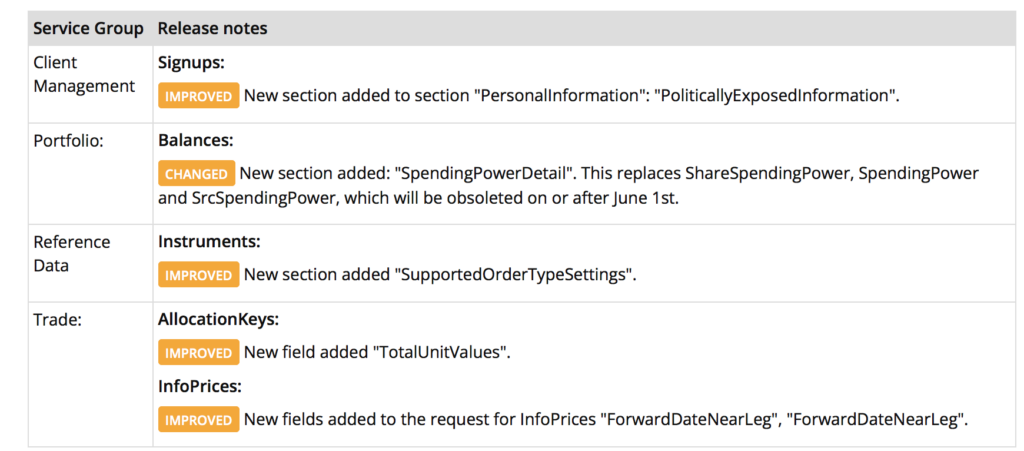Multi-asset trading and investment specialist Saxo Bank today released a new version of its OpenAPI, the backbone of trading platforms such as SaxoTraderGO. The latest version of the API enhances several service groups, including Client Management, Portfolio, Reference Data, and Trade.
In the Client Management group, for instance, a new section has been added to section “PersonalInformation”: “PoliticallyExposedInformation”. And, in the Portfolio group, a new section is added: “SpendingPowerDetail”. This replaces ShareSpendingPower, SpendingPower and SrcSpendingPower, which will be obsoleted on or after June 1st.

The company regularly updates its OpenAPI, which offers:
- Access to all resources and functionality required to build a high-performance multi-asset trading platform.
- Better integration with Saxo Bank for partners and affiliates through a growing set of resources, such as Saxo’s Onboarding API.
Saxo is planning a raft of updates to its OpenAPI. Saxo has scheduled the removal of certain methods for cash management in the client services service group – this should happen imminently now. The broker has also scheduled the introduction of support for HTTP/2 – on or after April 1st. Saxo expects this change to be non-breaking, but the bank still strongly encourages testing this already now.
Further, Saxo is planning the removal of a number of fields within the trading conditions in the Client Services group. The change is scheduled for June 1, 2022 (or after that date).

I may need your help. I tried many ways but couldn’t solve it, but after reading your article, I think you have a way to help me. I’m looking forward for your reply. Thanks.
As razões mais comuns para a infidelidade entre casais são a infidelidade e a falta de confiança. Em uma época sem telefones celulares ou internet, questões de desconfiança e deslealdade eram menos problemáticas do que são hoje.
¿Existe una mejor manera de localizar rápidamente un teléfono móvil sin que lo descubran?
Embark on a journey of epic proportions in our online fantasy game Lucky cola
Your point of view caught my eye and was very interesting. Thanks. I have a question for you.
Muchas gracias. ?Como puedo iniciar sesion?
I don’t think the title of your article matches the content lol. Just kidding, mainly because I had some doubts after reading the article.
Your point of view caught my eye and was very interesting. Thanks. I have a question for you.
Thanks for sharing. I read many of your blog posts, cool, your blog is very good.
Birçok sitede kandırıldım ama burada ne gördüysem onu yaşadım. AnkaraRusModel, Ankara escort hizmetinde kaliteyi temsil ediyor.
Greenpark, Oran ve Çukurambar gibi bölgelerde escort arıyorsanız kesinlikle buraya göz atın. Kalite, konfor ve gizlilik bir arada.
Hem web tasarımı hem kullanıcı deneyimi açısından site çok iyi. Ankara escort hizmetleri bu kadar profesyonel verilmemişti.